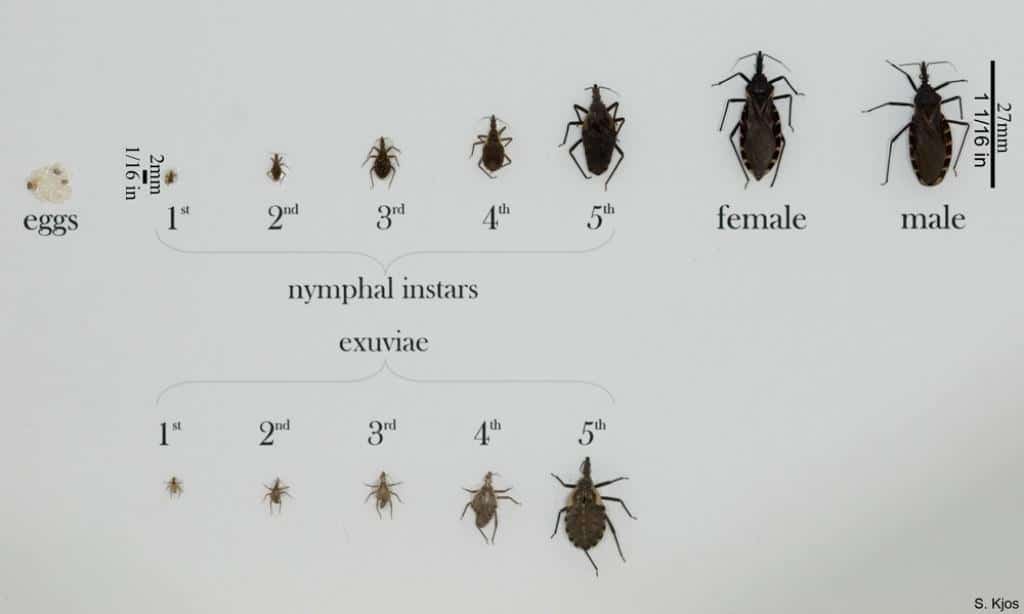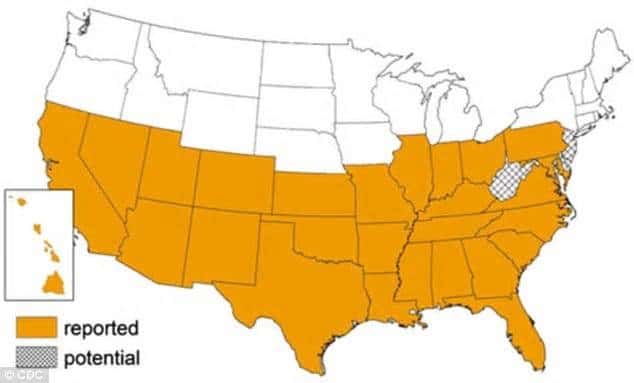

Kissing bug. Pavel Kirillov / Flickr / CC BY-SA 2.0
The Centers for Disease Control and Prevention (CDC) confirmed that the kissing bug, which can transmit a potentially deadly parasite, has spread to Delaware, ABC News reported Wednesday.
The CDC had warned in September of last year that the bug was spreading north from South and Central America, and had already been sighted in Maryland, Pennsylvania and Virginia, The Delaware News Journal reported. But the agency confirmed last week that a bug that bit a child’s face in Kent, Delaware in July 2018 was indeed a kissing bug.
Kissing bugs earned their name for their habit of biting people on their face, according to the World Health Organization. They are also called triatomine bugs, a range of species that can carry the parasite Trypanosoma cruzi, which causes Chagas disease, the CDC explains. Chagas can lead to stroke or heart failure, though most people who are infected experience no symptoms. Initial symptoms can include fever, fatigue, aches, headache, rash and swelling at the site of transmission, according to ABC News.

A variety of triatomine bugs at different stages of development.
CDC
There are currently 300,000 people in the U.S. and 8 million people in Central and South America living with the disease. Most of those living in the U.S. with the disease were infected while visiting Latin America,The Delaware News Journal reported. However, researchers have predicted U.S. infections could increase with climate change.
“We know the bugs are already across the bottom two-thirds of the U.S., so the bugs are here, the parasites are here. Very likely with climate change they will shift further north and the range of some species will extend,” Loyola University Chagas disease specialist Patricia Dorn said in a 2012 University of Vermont press release reported by ScienceDaily.
Delaware is one of the northernmost states in which the bug has been documented, The Miami Herald reported.

A map showing the U.S. range of kissing bugs.
CDC
The bug’s presence was confirmed in Delaware after a family sought the help of the Delaware Division of Public Health and the Delaware Department of Agriculture to identify an insect that had bitten their daughter while she was watching TV in her bedroom, ABC News reported. The family had not left the area before the incident, and the girl had an air-conditioning unit in her window. The girl’s health was not impacted by the bite.
The CDC recommends that people protect themselves from kissing bugs by sealing cracks leading into the home, keeping yard lights away from the house, as they can attract bugs, having pets sleep indoors at night, removing brush or rock piles near the home, using screens on windows and keeping the home and outdoor pet areas clean.
If you find a bug you think is a kissing bug, place it, unsquashed, in a container and take it to a health department or university for identification. Clean any areas it might have touched with one-part bleach to nine-parts water.

 233k
233k  41k
41k  Subscribe
Subscribe 